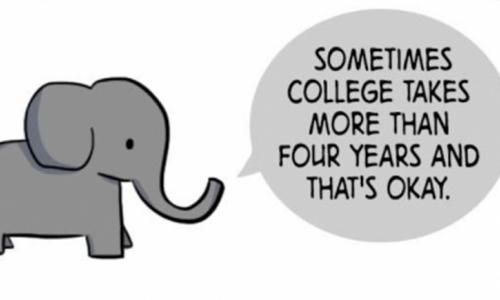
It’s difficult, but one of the things I think I’ve learned this semester (and likely will continue to learn over and over again as I push the limits) is that I can’t do it all. I can try, but at some time there comes a point where my foundations start to crack and the burden gets too big to carry. Learning to say no to new opportunities seems like a really important ability, but it’s also one of the most difficult. “What if that opportunity doesn’t come around again?” “What if I CAN fit it into my schedule?” “But those people need my help!” “But it’s exciting!” “But I want to do it!”
It seems there’s always a reason to say yes. So why say no?
It’s a skill, one I readily admit I haven’t mastered yet, knowing when to cut back, when to just say no. One thing that’s helped me in the past is knowing that I wouldn’t be able to give my 100% to each and every opportunity. My plate was too full, and little things were starting to seep over the edge onto the table. So I asked myself: What’s better? Stretching myself so thin I can barely move, zipped into a straightjacket that keeps me on a rigid schedule that, while rewarding, keeps me up too late? Or would I rather have a less-restrictive schedule – one that, while still rewarding, allows for flexibility and some down time? Phrased like that, it’s an easy choice to make. But it’s still surprisingly difficult to actually say no when those new opportunities come a-knocking.
Worrying about potential future missed opportunities is bad enough, but looking back on your life only to realize all the things you’ve missed out on is downright harrowing. Maybe you’ve been too busy to socialize, or you missed celebrating a birthday because “life got in the way.” If these words apply to you at all, here’s my advice: every once in a while, take a step back and appreciate what you have before adding something else. Consider WHY you want to seize a new opportunity, and be honest with yourself about your ability to actually put in a full effort.
So good luck to you in managing your opportunities. Whether it’s a new job, a volunteer opportunity, a co-op position, student club, or whatever else, there’s lots of help available! If you want to update your resume, or just aren’t sure how to order it, consider talking to a career peer educator! Also, check out all the online resources available to you – for example: here’s a blog article I wrote for the CSI blog just recently: How to Make Your Resume Stand Out.
Beyond the Blog
- This blog post was adapted from an article originally posted at Alix’s blog: Romeo & Juillet on 11/24/2012















